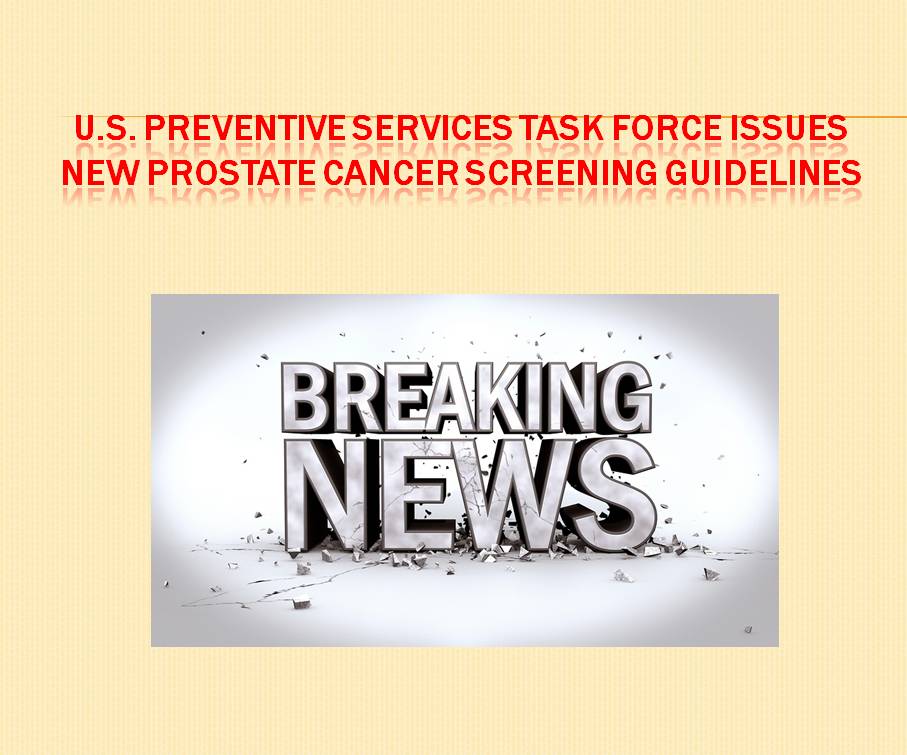
The new guidelines take a softer approach than the previous set, and take into account men’s tolerance for risk.
The U.S. Preventive Services Task Force (USPSTF) issued new prostate cancer screening guidelines today that take a less aggressive stance than in previous years, and suggest a more nuanced risks-versus-harms approach to whether men should have a prostate-specific antigen (PSA) test, compared with their earlier recommendation, issued in May 2012, which advised against PSA-based screening in any men.
In advising against PSA-based screening, the USPSTF gave it a D rating, which according to the Task Force means “there is moderate or high certainty that the service has no net benefit or that the harms outweigh the benefits.” The new guidelines, published online May 8 in the Journal of the American Medical Association (JAMA), are a marked departure from this position.
Screening for prostate cancer, which is done via a PSA blood test, has been a source of some controversy for years. Some say the screening is not accurate enough, and can cause harm via false positive results and lead to identifying and overtreating indolent cases of slow-growing prostate cancer that would never prove life threatening. Proponents, who include some leading prostate cancer physicians, argue that the tools are still the best available to catch more aggressive prostate cancers earlier.
After the 2012 recommendations were made public, an extensive comment period occurred. Many critics contended that there was no place for blanket recommendations or one-size-fits-all recommendations.
The new, softer stance from the USPSTF acknowledges that factors other than evidence were in play, including men’s different tolerance for risk. “If a man is more worried about getting prostate cancer and doesn’t care much about harms, the decision will be weighted to getting screened,” said Alexander Krist, MD, the Task Force cochair and the codirector of the Ambulatory Care Outcomes Research Network at Virginia Commonwealth University in Richmond. “If he is less worried about cancer and is concerned about potential harms, such as overuse, overdiagnosis, and bad treatment effects, he might choose against screening.”
What’s more, there are ways to reduce the potential harm caused by overdiagnosis, including increased use of active surveillance, in which a prostate cancer that is deemed low risk is watched carefully, rather than treated aggressively.
Among the Task Force’s other recommendations were:
A continuing point of controversy in the recommendations is that the guidelines do not call for earlier screening for African-American men. “We really don’t have enough African-American men in the studies. We are calling for more evidence.”
The American Cancer Society recommends that “African Americans and men who have a first-degree relative (father, brother, or son) diagnosed with prostate cancer at an early age (younger than age 65)” get screened for prostate cancer beginning at age 45. The reason for concern is that African-American men are twice as likely to get prostate cancer and twice as likely to die from it, according to Dr. Krist.